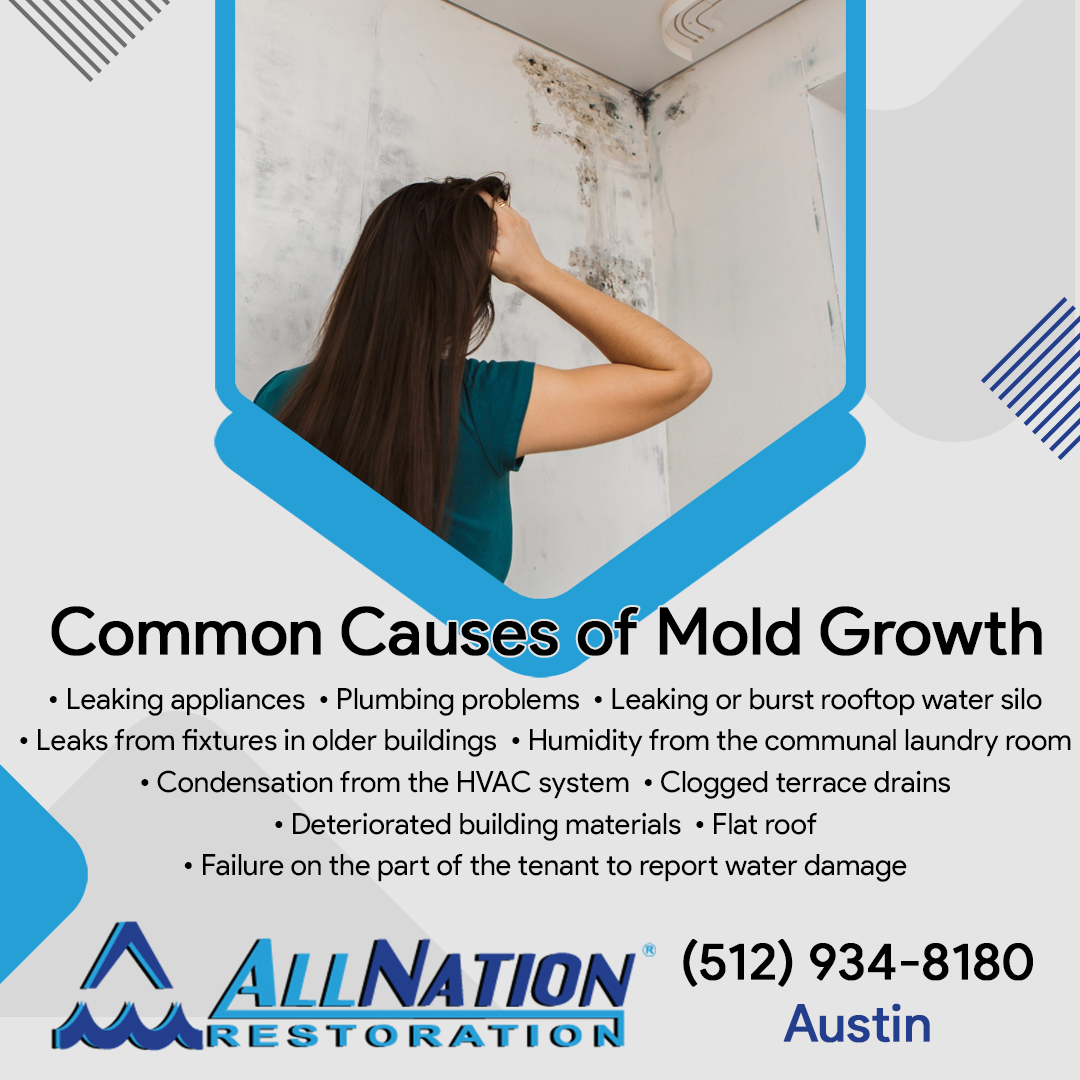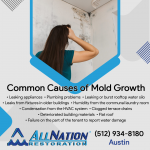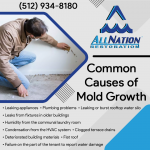All Nation Restoration, an Austin, TX, damage restoration company, is shedding light on ten causes of mold growth and mold infestations in apartment buildings. With this information at their disposal, apartment tenants and property managers can be more vigilant and can preemptively deal with water damage before it spirals into a mold infestation.
1. Leaking appliances
Leaking kitchen appliances, such as dishwashers, refrigerators, or icemakers, are common culprits of mold growth in an apartment. These appliances often leak slowly, so the water damage and resulting mold infestation may be widespread before the tenant even realizes that there is a problem.
2. Plumbing problems
A burst pipe can cause a devastating water damage disaster for an apartment building and its occupants. Depending on the scope of the pipe failure and the speed of the response to the incident, a deluge of hundreds to thousands of gallons of water can flood many apartments across several floors. When ceilings, walls, and floors are soaked by massive water damage, mold growth is inevitable. A rapid response from a water damage restoration company is critical to dry the premises, repair the damage, remediate any existing mold growth, and prevent mold from spreading throughout the water-damaged area.
While a burst pipe is a worst-case scenario, a small plumbing leak can also lead to mold growth. A flood draws more attention than a tiny trickle, so it is important that tenants and property managers address plumbing leaks of all sizes, even small leaks, to prevent a mold infestation from taking hold.
3. Leaking or burst rooftop water silo
Rooftop water storage tanks, also called water silos or rooftop water towers, are found on some apartment buildings and are used to provide the necessary water pressure to apartments that are at a higher elevation than the public water supply infrastructure is able to service. Containing thousands of gallons of water, a rooftop water tower can cause devastation to the apartments below if the silo bursts or leaks. The influx of water creates the moist conditions necessary for mold growth.
4. Leaks from fixtures in older buildings
Older apartment buildings may have radiators and steam pipes, and these fixtures can leak within the ceilings or walls. A leak hidden by a ceiling or wall will not typically be noticed quickly, so the first sign of mold growth may be the musty, earthy smell that heralds the presence of mold.
5. Humidity from the communal laundry room
A communal laundry room not only has a constant supply of heat and humidity generated from washing and drying laundry, but it also often contains boxes and containers made from cellulose, a favorite food of mold. The presence of heat, humidity, and a food source makes the laundry room an ideal home for a mold infestation.
6. Condensation from the HVAC system
Condensation is especially an issue in the summer, and the humidity generated by the HVAC, combined with the sweltering summer heat, creates the right conditions for mold growth. Not only is the HVAC system a prime breeding ground for mold, but it also is an effective mechanism for spreading mold spores throughout the apartment building.
7. Clogged terrace drains
When terrace drains are clogged by leaves, grime, and debris, rainwater may be forced to enter the apartments, where it can cause water damage and mold growth that require professional damage restoration and mold treatment services.
8. Deteriorated building materials
In older buildings, worn-out materials are a concern and can lead to water damage. Brick buildings especially may have an issue with rainwater seeping through the mortar in between the bricks. If the water drips behind exterior walls, mold can grow quietly without anyone noticing until the infestation is advanced.
9. Flat roof
Flat roofs can lead to several problems, including sagging, deterioration, and an inability to shed water properly. When the roof is compromised, water can make its way into apartments and encourage mold growth.
10. Failure on the part of the tenant to report water damage
Some tenants may be reluctant to report water damage for fear that their rent might go up or that they might be held financially responsible for the damage. However, reporting the damage to the property manager as soon as possible is essential to ensure that the damage does not snowball.
To learn more about mold remediation in Austin, TX, contact All Nation Restoration by phone at (512) 934-8180. The office can also be reached by email at info@AllNationRestoration.com.


























